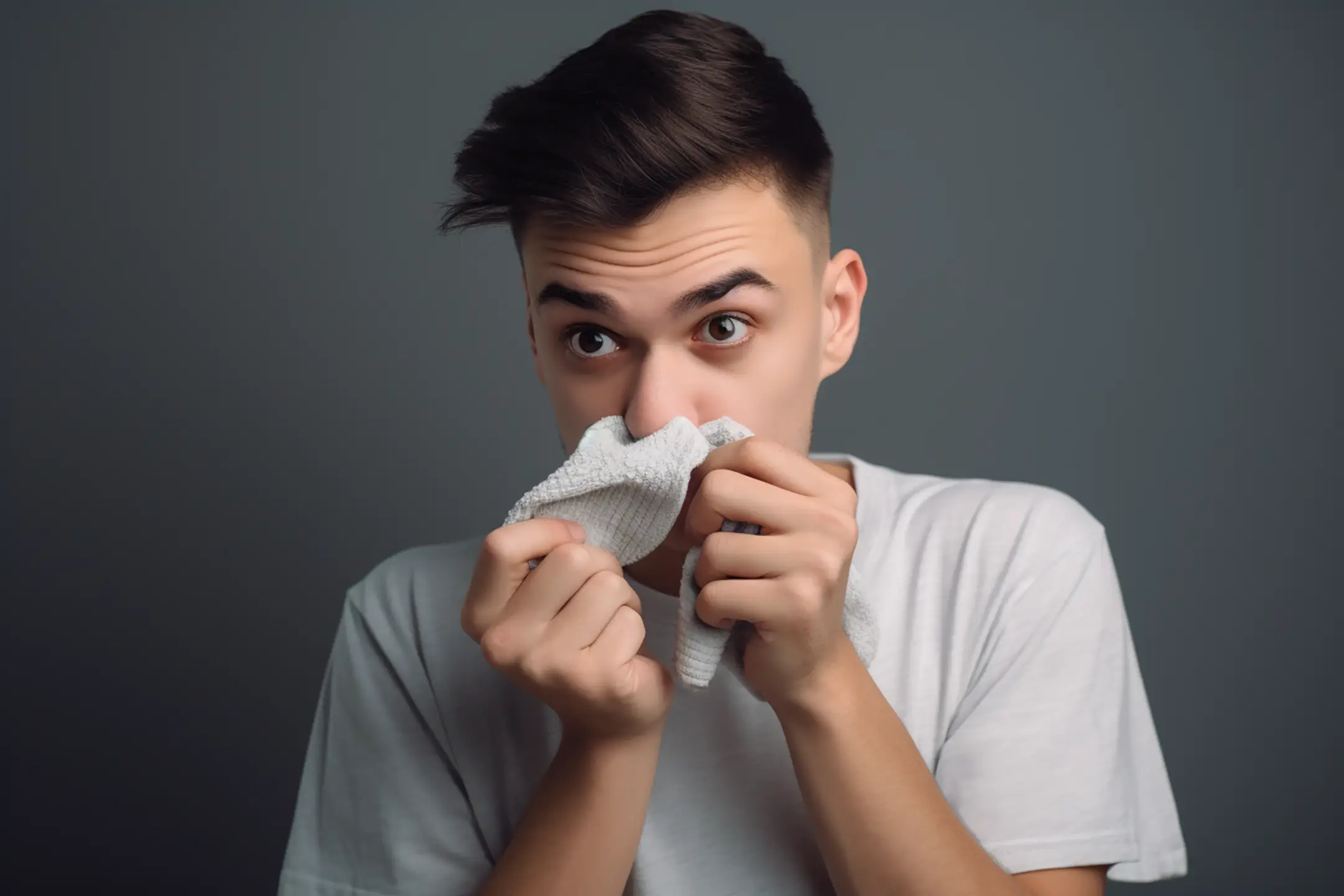
Most attribute smelly feet to sweat and bacteria. Yet, there’s more to the story when uncovering what causes foot odour. Delve deeper into the lesser-known triggers, offering insights beyond the typical reasons.
Introduction: What causes foot odour?
The complexities of foot odour extend beyond what many typically understand. While sweat and bacteria are the most common culprits, the story doesn’t end there. Our feet, home to about 250,000 sweat glands, release moisture every day, creating an environment conducive to bacterial growth. The bacteria that thrive in these moist conditions break down sweat, producing the all-too-familiar foul-smelling odour. However, the science of foot odour delves deeper into the interactions of skin cells, microbial ecosystems, and even our choice of footwear. Beyond the widely recognized factors, there are several lesser-known causes that contribute to the unpleasant aroma. Let’s explore the intricacies of foot odour and uncover the hidden reasons your feet might be smelling.
1. Diet’s direct influence
- Odour-Inducing Foods: Some foods produce compounds that, when excreted through sweat, lead to distinct smells. It’s not just about sweating more; it’s about the specific compounds the body releases.
- Coffee and Acidity: Excessive coffee can make your body release certain acids that might influence foot odour.
2. Footwear matters
- Material Composition: Some shoe materials react chemically with the natural oils of the foot, creating odours.
- Shoe Bacteria: Over time, shoes accumulate a variety of bacteria different from those on feet. This unique combination can lead to a different kind of smell.
3. Environmental factors
- Humidity: In humid conditions, the moisture level can influence the growth rate of odour-causing organisms on the feet.
- Walking on contaminated surfaces: Public showers, pools, or gyms expose feet to various organisms that can contribute to odour. It can also lead to contracting various bacterial or fungal infections.
4. Health conditions and foot odour
- Hyperhidrosis: While it’s about sweating, it’s a specific medical condition where excessive sweating is unrelated to heat or exercise.
- Fungal infections: Different fungi, not just athlete’s foot, can produce distinct odours.
5. pH imbalance on skin
Changes in the skin’s pH level can affect the types of bacteria and fungi that thrive on it, leading to a change in odour profile.
6. Hormonal factors:
- Puberty and foot odour: Teenagers aren’t just moody; their changing hormones can lead to increased sweat and, consequently, foot odour.
- Pregnancy and feet: Hormonal fluctuations during pregnancy can increase perspiration due to a higher body temperature and swelling, contributing to stronger foot odour.
7. The Metis PCA™ solution: Combatting foot odour
Unique properties of Metis PCA™: Metis PCA™ was originally designed as a fire-retardant fibre, but its properties extend far beyond that. Here’s how it addresses foot odour:
- Antibacterial & Antifungal Features: Bacteria and fungi are primary contributors to foot odour. The intrinsic antibacterial and antifungal properties of Metis PCA™ mean that these microorganisms find it difficult to thrive, leading to significantly reduced odour.
- Moisture Management: One of the critical elements that bacteria and fungi need to grow is moisture. Metis PCA™ fibre has superior moisture-wicking properties, ensuring that feet remain dry, reducing the conditions that lead to foot odour.
- Natural Odour-Free Qualities: Metis PCA™ itself doesn’t retain or develop odours, ensuring that the natural smell of your feet doesn’t get trapped within the material.
Conclusion
Foot odour is influenced by a myriad of factors, from diet to environmental conditions. Yet, with innovations like Metis PCA™, there’s hope in the battle against unwanted smells. By understanding these triggers and utilising advanced materials, we can make informed decisions to manage and reduce foot odour more effectively.
Medical disclaimer: The content about foot odour causes in this article is for informational purposes only and should not be considered professional medical advice or diagnosis. Always consult with a healthcare professional regarding any foot-related concerns.
